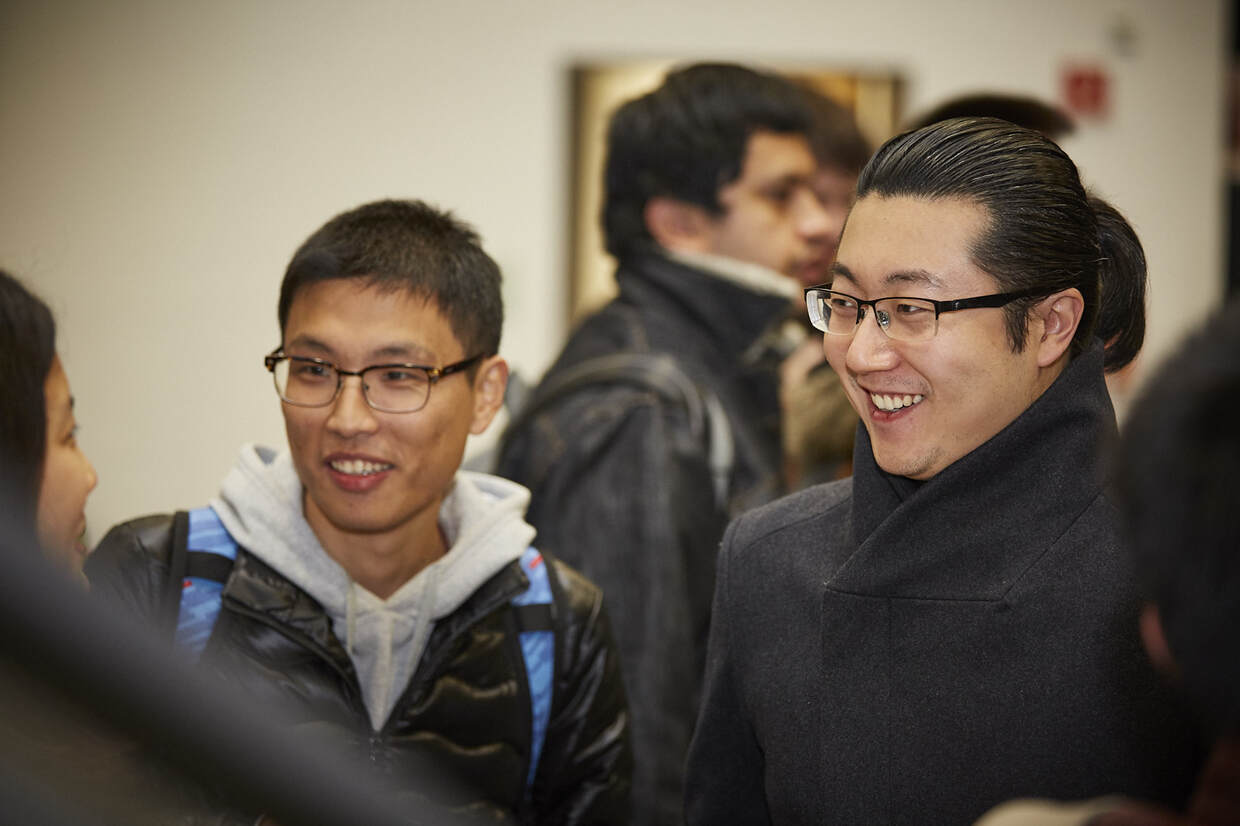China: KIT attractive for young researchers

The KIT is highly regarded among young Chinese scientists. This is confirmed by the response to the Helmholtz OCPC Program 2017-2021, which aims to involve Chinese postdoctoral researchers in cooperation projects. The KIT, which offers five places, registered the highest number among the Helmholtz centers with eleven applications.
The program is open to Chinese postdoctoral students who did not graduate more than five years ago and who are working in a research institute or a university in China. With a scholarship they can research two years at a Helmholtz center. The centers of the Helmholtz Association contribute 1,500 euros per month, 1,700 euros come from the Office of China Postdoctoral Council (OCPC) of the Ministry of Human Resources and Social Security (MoHRSS).
Four institutes of the KIT were involved in the call: the Institute for Functional Interfaces (IFG, Professor Dr. Christof Wöll, two applications), the Institute for Meteorology and Climate Research - Atmospheric Environmental Research (IMK-IFU, Garmisch-Partenkirchen, Dr. Benjamin Wolf, Dr. Ralf Kiese), the Institute for Microstructure Technology (IMT, Professor Dr. Manfred Kohl) and the Institute of Nanotechnology (INT, Professor Dr. Horst Hahn).
The institutes are expected to make their selection in July 2017. Postdoctoral researchers are expected to start working from February 2018 at the latest.
"The initiative of the institutes," says Dr. Annika Hampel, Head of the International Unit (INTL) at KIT, "is an important building block for the regional strategy of KIT in China". KIT wants to strengthen its commitment in China and to align it strategically. The project "Strategic Partnerships for Joint Innovations - KIT in the Jiangsu Province and the Shanghai Metropolitan Region" (StratP KIT - China), funded by the German Academic Exchange Service (DAAD), plays a central role in this project, involving several institutes of KIT and INTL. In May, the stakeholders met for a milestone workshop to draw up an interim balance and discuss ways to continue the project beyond 2019 when the first funding phase ends. The Chinese partners are the Nanjing University of Science and Technology, Shanghai Jiao Tong University, Soochow University and Tongji University.
